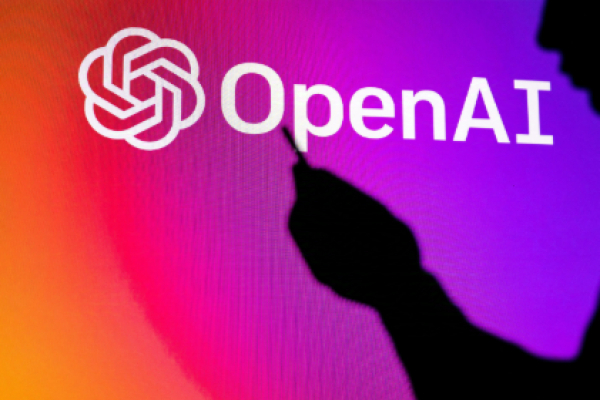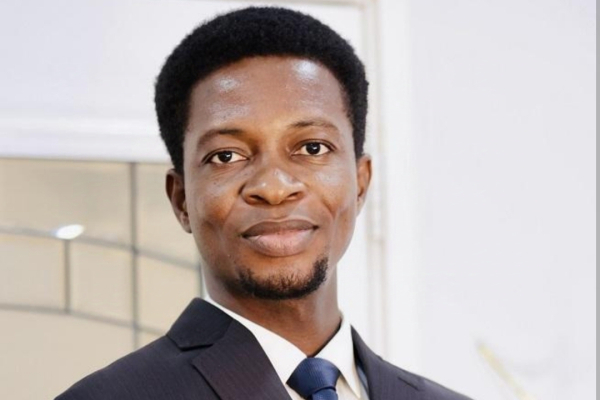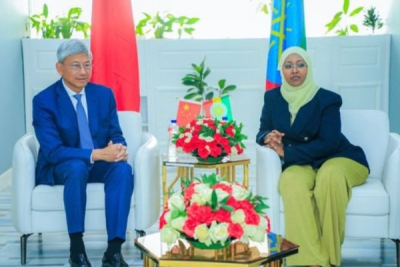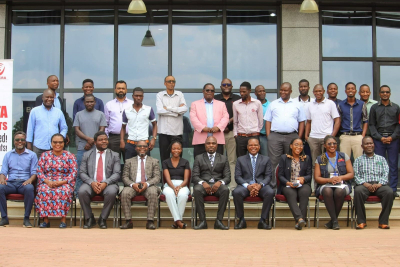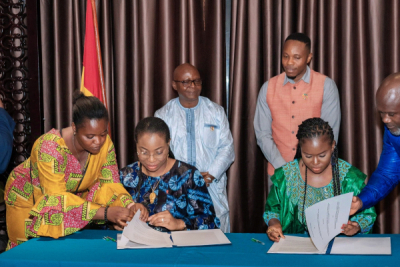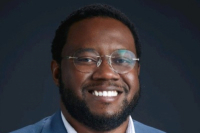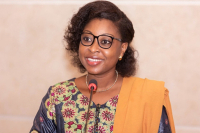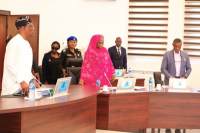Artificial intelligence (AI) is rapidly transforming industries worldwide. While Africa stands to benefit significantly from its advancements, the limited integration of African languages into AI systems poses a major obstacle to its full potential.
Orange announced, yesterday, a partnership with OpenAI and Meta to advance this initiative. The project, set to launch in the first half of 2025, aims to develop AI systems capable of recognizing and interacting with African languages.
West African languages such as Wolof and Pulaar will be the first to be included in the project. These languages will be integrated into OpenAI's Whisper and Meta's Llama technologies, which specialize in language recognition and translation.
Current AI models are predominantly trained using English-language data, which limits their capacity to support African languages. The underrepresentation stems from the scarcity of data available in these languages. To address this gap, Orange will contribute data from its local applications, particularly those used in customer service, to enhance AI processing of African languages.
One of the key objectives is to allow Orange users to interact with customer service in their native languages, making the user experience more seamless and accessible. The advancements achieved through this collaboration will extend beyond Orange’s services. The AI models developed will also be made available for non-commercial use, supporting public health and education initiatives.
By Servan Ahougnon
Editing by Sèna D. B. de Sodji
He has over ten years of experience in technology, education, and entrepreneurship. A former intern at NASA, he leverages his expertise in geospatial technology to gather valuable data that supports various development sectors.
Richard Folly (photo) is a Togolese geospatial analyst and technology entrepreneur. He is the founder and CEO of African Geospace, a company specializing in space technologies and big data analytics.
Founded in 2019, African Geospace develops solutions based on satellite data analysis and artificial intelligence, empowering clients to make informed decisions and optimize their operations using cutting-edge tools. The company serves several key sectors.
In agriculture, African Geospace provides solutions for improved crop monitoring, promoting optimal production while prioritizing environmental sustainability. In mining, the firm offers tools to maximize resource extraction while ensuring sustainable practices. Additionally, it plays a significant role in advancing the energy transition.
Richard Folly earned a bachelor’s degree in geography from the University of Lomé in 2016. He also holds a 2017 public management certificate from Arizona State University.
In 2016, he taught digital literacy at ESIG Global Success, a university specializing in IT and management. The following year, he interned at NASA, focusing on geospatial technologies. Between 2020 and 2022, he worked as a data scientist at Togo’s Ministry of Digital Economy and Digital Transformation.
Melchior Koba
To bolster its digital transformation efforts, Ethiopia is forging strategic partnerships, including closer ties with an Asian country on cybersecurity matters.
Tigist Hamid (photo, right), Director General of the Information Network Security Administration (INSA), recently met with Chen Hai (photo, left), China's Ambassador to Ethiopia. According to the Ethiopian News Agency, which revealed the meeting on Monday, November 25, the discussions focused on cybersecurity.
The news agency reveals that Tigist Hamid presented the Chinese official with "cybersecurity products and services provided by the administration as well as ongoing efforts to enhance the country's cybersecurity infrastructure." She also highlighted the need for sustained support and collaboration between the Ethiopian and Chinese governments in the field of cybersecurity.
Ethiopia is currently ranked as a Tier 3 country on the International Telecommunication Union's (ITU) Global Cybersecurity Index, with a score of 76.34 out of 100. This ranking reflects a basic level of commitment to cybersecurity, as measured by public initiatives to evaluate, establish, or implement generally accepted measures across a moderate range of indicators.
China, by comparison, scored 91.64 out of 100 in the 2024 index, placing it in the Tier 2 category. While not among the leading nations in cybersecurity, China’s advanced expertise and its influential tech companies—such as Huawei, ZTE, Tencent, and Xiaomi—could prove valuable for Ethiopia as it seeks to strengthen its digital defenses.
Adoni Conrad Quenum
Language diversity in Africa often limits digital inclusion. Offering technologies in local languages simplifies access, encouraging adoption and broader use, which bridges the digital divide.
French multinational telecom Orange has announced a partnership with OpenAI and Meta to develop AI Large Language Models (LLMs) tailored to understanding regional African languages. Announced on November 26, the initiative will utilize OpenAI's Whisper and Meta's Llama platforms to address the underrepresentation of African languages in AI systems.
“Orange’s long-term goal is to work with many AI technology providers to enable future models to recognize all African languages spoken and written across Orange’s 18-country footprint in the region,” the release stated.
The project, set to launch in 2025, will initially focus on enhancing customer interactions in Wolof and Pulaar, spoken by millions in West Africa, and extend Orange’s digital inclusion efforts. These models will also be available for non-commercial use in public health and education.
Most existing AI models primarily cater to widely spoken languages, leaving millions of African language speakers without representation in digital systems. Orange's collaboration with OpenAI and Meta to develop AI models for African languages tackles a significant barrier to digital inclusion.
By enabling technology to communicate in local languages, the partnership promotes inclusive innovation and aligns with global efforts to ensure digital access for underserved populations.
Hikmatu Bilali
Malawi Communications Regulatory Authority (MACRA) briefed stakeholders, on November 26, about the upcoming Communications Electronic Equipment Type Approval Regulations, set to take effect Dec. 1, 2024.
The initiative is part of a broader effort to enhance Malawi's communication infrastructure. This approach is intended to facilitate interoperability among communication networks and equipment while also protecting public health.
Stakeholder sessions were also held in Blantyre, with another planned for Mzuzu.
Guinean and Sierra Leonean authorities have held several meetings since July as part of negotiations to advance a digital interconnection project. These discussions have laid the groundwork for collaboration between the two countries.
Rose Pola Pricemou, Guinea’s Minister of Posts, Telecommunications, and Digital Economy, and Salima Monorma Bah, Sierra Leone’s Minister of Communication, Technology, and Innovation, signed a framework agreement on Friday, November 22, in Freetown to enhance digital interconnection between their two nations.
The agreement focuses on linking the internet backbones of the two countries, aiming to improve connectivity and facilitate digital exchanges. It builds on discussions launched during the China-Africa Digital Summit in July. In August, a Sierra Leonean delegation led by Minister Monorma Bah visited Guinea to refine the technical framework of the partnership.
According to Minister Pricemou, the initiative is expected to harmonize postal policies to improve essential services for the population—particularly in rural areas—while making networks more robust and reliable. This should reduce costs, enhance the quality of digital services, and foster a dynamic digital ecosystem. It also seeks to encourage collaborative initiatives in fields like big data and cybersecurity.
As of early 2024, Guinea had 4.87 million internet users, representing an internet penetration rate of 33.9%, according to DataReportal. Sierra Leone, in comparison, recorded 2.7 million users and a penetration rate of 30.4%.
Cost remains a barrier in both countries. In Guinea, a monthly high-speed data package (at least 5 GB at 256 Kbps or higher) required 8.1% of the average gross national income per capita in 2023, according to the International Telecommunication Union (ITU). In Sierra Leone, the same metric stood at 38.2% in 2017, underscoring the challenge of affordable access in the region.
Adoni Conrad Quenum
He is a computer scientist and entrepreneur driven by a passion for leveraging technology to develop innovative solutions. He has already founded two companies—one specializing in finance and the other in healthcare.
Jessé Liula Schiceya (photo) is a serial entrepreneur from Namibia and the founder of Nikkle, a company specializing in financial management services for small and medium-sized enterprises (SMEs).
Launched in 2021, Nikkle offers a comprehensive financial management platform with a wide range of features. It helps businesses streamline accounting, manage human resources, optimize client relations, and coordinate projects. The platform empowers business leaders by providing tools to create invoices, draft quotes, manage recurring expenses, and automatically generate financial reports for tax filings. Today, Nikkle serves over 10,000 clients across six Southern African countries.
Schiceya is also a co-founder of Patient Care, a startup focused on improving the accessibility, quality, and affordability of healthcare in Africa. Additionally, he sits on the board of the Global Africa Leadership Council, an organization dedicated to promoting development financing, investment, and economic growth.
Schiceya earned a degree in computer science from the London Business School in 2014 but began his career earlier, in 2011, as an assistant at Shoprite, a leading retail company in Africa. By 2020, he had risen to the position of Head of IT, Digital, and Data Protection at GFA Consulting Group, an international consultancy.
His entrepreneurial talent gained widespread recognition in 2022. Schiceya was awarded the Most Promising Entrepreneur in Southern Africa by AfricArena and won the Startup Namibia Slingshot Pitch competition organized by Startup Namibia.
Melchior Koba
Africa is the continent with the most expensive mobile internet in the world, according to the International Telecommunication Union (ITU). On average, African populations spend 4.9% of their monthly gross national income (GNI) per capita to access a standard monthly internet plan, compared to the global average of just 1.3%.
In 2023, mobile internet costs in West Africa were most affordable in Nigeria, Ghana, and Côte d’Ivoire, according to data from the International Telecommunication Union (ITU), the UN’s specialized agency for information and communication technologies.
In Nigeria, accessing the cheapest mobile broadband plan offering at least 2GB of data per month using 3G technology required 1.61% of the monthly gross national income (GNI) per capita. In Ghana and Côte d’Ivoire, the cost was 1.94% and 2%, respectively, of the monthly GNI per capita. The ITU considers internet affordable when its cost is equal to or less than 2% of monthly GNI per capita. In West Africa, only Nigeria, Ghana, and Côte d’Ivoire met this benchmark in 2023. Across Africa, the average stood at 4.9% of monthly GNI per capita. Senegal (2.47%) and Mauritania (3.01%) were below this average but still above the affordability threshold.
In contrast, Guinea-Bissau, Burkina Faso, and The Gambia had the highest mobile internet costs in the region. Residents of these countries had to spend 9.79%, 9.81%, and 11% of their monthly GNI per capita, respectively, to access the same type of mobile broadband plan.
Factors Behind High Costs
Various factors contribute to the high cost of internet in these countries. According to the State of Broadband 2024: Leveraging AI for Universal Connectivity report published in June 2024 by the Broadband Commission, lack of affordability remains a significant barrier to internet access, especially in low-income economies. The report adds that compared to prices in high-income economies, the cost of mobile broadband services is 5.5 times less affordable in lower-middle-income countries and over 20 times less affordable in low-income countries.
The State of Mobile Internet Connectivity 2024 report from the Global System for Mobile Communications Association (GSMA) notes that Sub-Saharan Africa has the highest coverage gap globally, at 13%. This is largely due to the lack of telecommunications infrastructure, which forces some markets to impose high tariffs to make the most of limited resources. "Fixed broadband networks are very expensive to deploy, maintain, and upgrade, especially considering geography and the vast areas that need coverage," the ITU highlighted.
Adoni Conrad Quenum
Digital transformation is a key priority for the Beninese government. For instance, the administration plans to allocate a budget of 16.4 billion CFA francs to digital projects in 2025.
Benin's government plans to connect an additional 18 municipalities to fiber-optic networks by mid-2025, as part of its broader goal to expand high-speed internet access to all 77 municipalities nationwide. The announcement was made by Digital Economy and Digitalization Minister Aurélie Adam Soulé Zoumarou during a November 21 television program.
The deployment of fiber optics in these new municipalities will strengthen the national backbone, which currently links 50 municipalities via approximately 2,550 kilometers of fiber. The government aims to extend this network to a total of 3,300 kilometers. Additionally, nine municipalities will be connected through alternative technologies.
These efforts are part of a larger project to deploy high-speed and ultra-high-speed internet across Benin. This initiative, with an estimated cost of 207 billion CFA francs ($330.63 million), is a cornerstone of the government's 2021-2026 Action Plan. The government aims to position Benin as "West Africa's digital service platform, accelerating growth and fostering social inclusion."
Improving Coverage and Adoption
The project has the potential to significantly enhance telecommunications coverage, particularly internet access, nationwide. The government claims 4G network coverage already reaches approximately 90% of the population, a figure supported by the International Telecommunication Union's (ITU) ICT DataHub. ITU also reports that 2G and 3G networks cover 98% and 90% of the population, respectively, while 5G services are in the early stages of commercialization.
In June 2024, the Regulatory Authority for Electronic Communications and Postal Services (ARCEP) reported 11.06 million mobile internet subscribers and 20,000 fixed internet users. With a population estimated at around 13.7 million (World Bank, 2023), mobile telephony subscriptions stand at 17.8 million, while fixed-line telephony subscriptions are limited to 1,363. However, ITU data indicates internet and mobile penetration rates of 33.8% and 53.9%, respectively, as of the end of 2023.
Isaac K. Kassouwi
Nigerian states are ramping up initiatives to accelerate their digital transformation in line with the federal government's objectives. This effort spans all sectors of the economy, including education.
In Nigeria, the Federal Capital Territory (FCT) plans to distribute over 1,000 laptops to its secondary schools. Valued at approximately 990 million naira (around $589,000), the acquisition was approved by the FCT Executive Council during a meeting on Monday, November 25.
According to Danlami Hayyo, the FCT Secretary for Education, the laptops will come preloaded with educational content and learning materials focused on vocational skills.
“FCT schools will now transform into the digital education system, we will now move from normal teaching and learning classroom to media education system of learning,” said Chidi Amadi, Chief of Staff to the FCT Minister.
The laptop acquisition is part of a broader strategy to digitize the education system and improve teaching quality in the FCT. The Executive Council recently approved a contract for procuring examination materials. Earlier, in September, the FCT launched a program to train 3,000 primary school teachers in digital teaching methods.
The United Nations Educational, Scientific, and Cultural Organization (UNESCO) highlights two key benefits of digital technology in education. “First, it can improve instruction by addressing quality gaps, increasing available time and opportunities to practise, and personalizing instruction. Second, it can engage learners by varying how content is represented, stimulating interaction and prompting collaboration,” according to the 2023 Global Education Monitoring Report.
Isaac K. Kassouwi
More...
Balancing professional and parental responsibilities has led many families to entrust their children to daycare centers, nurseries, or nannies. In Mali, a tech entrepreneur has introduced a tailored solution to address this challenge.
MaNounou is a digital platform developed by Malian startup La Classe de Bintou. Designed for parents, it connects them with qualified nannies for young children in their area. Founded by Bintou Doumbia and based in Bamako, the start-up addresses a growing need for reliable childcare solutions in Mali.
“The platform also enables daycare centers, preschools, and other childcare professionals to offer their services to parents in need. MaNounou provides unemployed young women with degrees the chance to train in early childhood care and apply their skills in a professional environment,” explains the startup.
The platform operates through a mobile app. After downloading the app, users create an account to access a range of services. These include viewing detailed nanny profiles—complete with experience, qualifications, schedules, and parent reviews—and using an integrated messaging system for secure, direct communication. Parents can also filter searches by specific criteria to find the ideal nanny for their needs.
To ensure the safety and quality of its services, MaNounou rigorously verifies all profiles on its platform. Hiring a nanny through MaNounou is formalized with contracts available for secure online signing, offering protection for both parties throughout the agreement period.
In 2024, MaNounou won the Malian stage of the Orange Social Entrepreneur Prize in Africa and the Middle East (POESAM), earning a prize of 5 million CFA francs (approximately $7,973) and a ticket to the international round of the POESAM competition.
Adoni Conrad Quenum
Guinea, confronted with the need for administrative modernization, is turning to digital solutions to streamline its processes. This initiative represents a significant step forward in public resource management, prioritizing innovation and international cooperation.
Guinea is looking to Rwanda as a model for its first-ever digital public procurement system. A strategic agreement was signed on Wednesday between the Guinean government and the Rwanda Cooperation Initiative (RCI).
“We have proven expertise in digitizing public procurement, particularly in public financial management, and it is this experience we aim to share with Guinea. We signed this contract to formalize our commitment and support the country in establishing its digital system,” said Patricie Uwase, Director-General of the Rwanda Cooperation Initiative.
This agreement builds on a collaboration that began in 2023 between RCI and Guinea as part of the E-Procurement project. Championed by the transitional president, Mamady Doumbouya, the project seeks to enhance transparency, improve administrative efficiency, and optimize public resource management. It is also a critical tool in the fight against corruption—a persistent issue in Guinea’s public procurement sector, frequently criticized for its lack of transparency and questionable practices.
The new digital system aims to simplify and tighten control over procurement processes, ensuring greater traceability of transactions. Additionally, the digitization of public procurement is expected to reduce both delays and associated costs while boosting the confidence of foreign investors drawn to transparent and modern administrative practices.
By leveraging Rwanda’s recognized expertise, Guinea hopes to lay the groundwork for effective and transparent governance. If successful, this initiative could redefine public procurement standards in West Africa, positioning Guinea as a model for digital innovation and anti-corruption efforts. The government is targeting swift implementation, aiming for full digitalization of all public procurement plans by January 1.
Samira Njoya
The London Internet Exchange (LINX) will launch LINX Accra, a new interconnection platform at PAIX Data Centres, in early Q1 2025.
This expansion responds to rising demand in Ghana’s networking community and will improve local and international internet traffic through faster, more reliable, and cost-effective connections.
LINX Accra will reduce latency and boost connectivity for businesses and consumers. The platform supports local ISPs while positioning Accra as a key internet gateway for West Africa.
She believes technology can significantly empower children and young people, helping them reach their full potential. To achieve this goal, she develops programs designed to train them in a variety of fields.
Nancy Sumari (photo) is a Tanzanian entrepreneur dedicated to advancing education and technological innovation. She is the founder of Jenga Hub, an educational center that leverages technology to make learning more interactive, inclusive, and creative.
Established in 2016, Jenga Hub provides children and young people with a space to develop digital skills and explore creativity through technology. Participants engage in creating art, animations, simulations, websites, robotics projects, musical compositions, and multimedia presentations.
Jenga Hub is part of a global network spanning 44 countries, connecting children and educators committed to equipping future generations with technology-driven skills. Currently, over 12,000 students are involved in STEM (science, technology, engineering, and mathematics) clubs across 50 schools, with more than 500 teachers trained through the initiative.
Before founding Jenga Hub, Sumari established the Neghesti Sumari Foundation in 2013, which focuses on community transformation through education, technology, and agriculture.
A graduate of the University of Dar es Salaam, Sumari earned a bachelor’s degree in commerce, management, and marketing in 2014. She later completed a master’s degree in economic and international development at University College London (UCL) in 2022.
Her professional journey began in 2006 at Sahara Communication Ltd, where she served as a programming officer. In 2009, she became the managing director of Bongo5 Media Group, a Tanzanian media company. More recently, in 2021, she joined Designathon Works, an organization dedicated to children’s education, as director of strategic partnerships.
Melchior Koba


